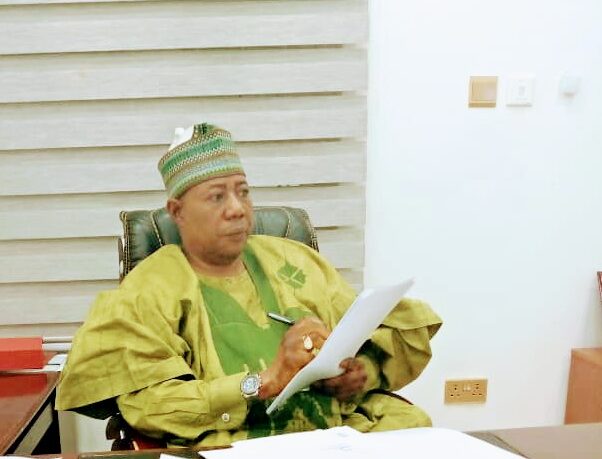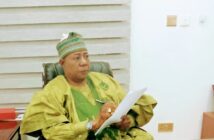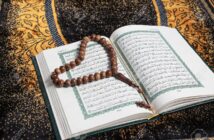A wise man once said, “Accountability feels like an attack when you are not ready to acknowledge how your behaviour harms others.”
The foregoing aptly captures the mood of Nigerians in the last month. Nigeria and its leadership have been subjected to extreme ridicle by the internationalisation of Nigeria’s domestic affairs by the candidate of Peoples Democratic Party (PDP) in the February 25 presidential election, Atiku Abubakar. The Adamawa-born politician is bent on destroying the global image of Nigeria the Renewed Hope Agenda is working frantically to rebuild in order to attract foreign direct investments, thereby commencing the rebuilding of our battered economy.
Atiku’s actions in obtaining Tinubu’s academic records from Chicago State University are ridiculous and dangerous. They are also a sign that he is pursuing power for pedestal and narrow gain.
What is clear from his actions so far is that he is working assiduously to ridicule the Nigerian president and the country at large. But to his own detriment, he has by default raised questions about his own commitment to democracy and the rule of law. The former vice president’s belief that except he becomes president of Nigeria, the country must fall is also dangerous. It is a sign that he is willing to put his own personal gain ahead of the good of the country.
Without an iota of a doubt, Atiku’s actions are also a distraction from the important issues facing Nigeria. The country is facing a number of challenges, including poverty, unemployment, insecurity, and corruption, which the Renewed Hope government is working to address through wide range economic reforms.
I hope that Atiku will reconsider his actions and focus on the important issues facing Nigeria. The country deserves better than this. The damage his legal challenge in the United States has done to Nigeria is unimaginable. If I may ask, how did Atiku acquire so much resources with which he is fighting to tear down his fatherland?
This question is a wakeup call for the Nigerian Financial Intelligence Unit (NFIU), the Economic and Financial Crimes Commission (EFCC), and the Independent Corrupt Practices and Other Related Offences Commission (ICPC) that they have a crucial role to play in prosecuting those using proceeds of corruption to destroy President Bola Tinubu’s renewed hope Agenda under the pretext of politics.
The NFIU, EFCC and ICPC are responsible for investigating and prosecuting financial crimes, including corruption. These agencies must be given the resources and support they need to do their jobs effectively. They must also be independent of political interference, so that they can investigate and prosecute corrupt individuals regardless of their political affiliation and societal status.
In the specific case of Atiku Abubakar, the EFCC, ICPC, and NFIU should investigate allegations of corruption levelled against him. If they find evidence of wrongdoing, they should prosecute him to the fullest extent of the law. This will send a strong message that no one is above the law, regardless of their political affiliation.
In addition to prosecuting corrupt individuals, the NFIU, EFCC, and ICPC must also focus on preventing corruption. This can be done by educating the public about the dangers of corruption and by working with financial institutions to identify and report suspicious transactions.
There is a critical reason why I’m making this call. The EFCC, ICPC, and NFIU should wake up to strip corrupt politicians of their stolen funds. This is essential to preventing them from using their wealth to undermine the government and cause mischief against the Nigerian State.
Countries like China and Singapore were very aggressive in dealing with corruption than in addressing economic reforms. These efforts were punctuated by an occasional harsh prison term for major offenders, or even executions. The systematic anti-corruption measures they adopted included independent trade and professional associations, which helped limit corruption by promulgating codes of ethics and imposing quick penalties, watchdog groups like NGOs, and a free media.
Also, Nigeria can copy from the world’s modern democracy, the United States of America USA, where a long-serving Senator was fired due to corruption case hanging on his neck from Egypt. Presently in that country, former President Donald Trump and the serving President, Joe Biden, are all facing legal battle for corruption, including members of their families. It is high time for Nigeria’s anti-corruption agencies to make bold moves like their counterparts in these aforementioned countries expected so that investors will start trooping in to invest in Nigeria’s Renew Hope drive of the Tinubu administration.
In Nigeria, there is a clear correlation between corruption and political instability. When politicians steal from the public purse, they deprive the government of the resources it needs to deliver essential services. This can lead to poverty, unemployment, and other social problems. Corrupt politicians may also use their wealth to fund violence and crime.
By stripping corrupt politicians of their stolen funds, the EFCC, ICPC and NFIU can help to reduce corruption and promote political stability. This will create a more conducive environment for economic development and prosperity.
In the area of preventing corruption and building institutional capacity to resist corruption, the NFIU, EFCC and ICPC will do well to consider adopting the following steps: Investigate and prosecute high-profile corruption cases. This will send a strong message that no one is above the law, and it will deter others from engaging in corruption.
They should target corruption in the political circle. This is where corruption is most damaging to democracy and development. They should work together to share information and coordinate their efforts. This will help them to be more effective in their fight against corruption.
Above all, they should educate the public about the dangers of corruption and how to report it. This will help to create a culture of zero tolerance for corruption.
By taking these steps, the NFIU, EFCC, and ICPC can play a vital role in helping President Tinubu to achieve his Renewed Hope Agenda for Nigeria.
– Ibrahim is director, Communications and Strategic Planning of the Presidential Support Committee.



